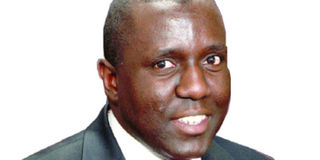The British election leaves political classes spinning

Mr Karoli Ssemogerere is an Attorney-at-Law and an Advocate.
Great Britain went to the polls last Thursday and provided a few days of political excitement. The Conservatives won the election with the highest percentage of the vote 42.5 per cent but not high enough to shake off Labour, which came just behind with 40 per cent of the vote. Labour led by Jeremy Corbyn had been written off for most of the election claimed victory even though they are more than 60 seats short of a majority. Not to say that Labour didn’t do major damage to the Conservatives.
Labour snatched 21 seats from the Conservatives in England. In their place, the Conservatives won 13 seats from the Scottish Nationalists a left-leaning nationalist party, creating a new force to contend with. If elections were called in the next six months as is now likely, Labour is likely to end up with a majority of seats outside a major Conservative force.
Ms Theresa May, the Prime Minister, is back in office very much weakened. She will rely on the support of a small Irish party, the Democratic Unionist Party founded by the Rev Ian Paisley. Officially, the major UK parties stay out of local Irish politics, which is dominated by Catholic-Protestant schisms and the future of Northern Ireland either in the United Kingdom or as part of Ireland.
This was a major climb-down as the likelier prospect of a grand coalition with Labour or a Conservative-Lib Dem coalition could not happen. Liberal Democrats will remember for a long time, the pounding they took for allying with the Conservatives from which the parliamentary party never recovered.
Britain is on course to leave the EU but the terms are likely to change. The EU, frustrated at the departure of its second largest economy, have been sizing to exact maximum damage on the British.
Looming large are a “break-up” fee to compensate for membership obligations of $40 billion, which is unlikely to happen, future costs for participating in the common market, regulations to move Euro-related transactions-clearing out of London and so on.
The British having caught up after years in the cold are excited to spend more of their money at home. Austerity, one of the red spots on the conservatives, has kept the pound stable and given the British more flexibility and courage to leave Europe where most economies except Germany are running back to back deficits.
In the House of Commons, both the Conservatives and the SNP who lost 24 seats are sitting nervously. Business commenced with a bit of humour and self- deprecating jokes. Ms May nervously noted she no longer commanded an overall majority during the re-election of the Speaker John Bercow. After months of haranguing Corbyn, who famously fell out with his parliamentary party, she was on the receiving end of name-calling by Corbyn, who called her efforts to ally with DUP [it really has some nut heads] as a “coalition of confusion”.
After 34 years in the Commons, which he joined along with Tony Blair in 1983, he has just one more shot at becoming prime minister.
Ms May will have to steer for a brief while in this state of affairs. Labour wants UK out of the EU, but wants it to remain in the Customs Union with freedom of movement. Her DUP allies want to leave the EU, but stay with a soft border with the south.
The Scottish conservatives are not so keen to leave the EU, which has been sending them a lot of money to compensate for lost oil revenues. Her own conservatives back leaving with EU, “hard Brexit” with a deal or no deal. It will be very hard for Ms May to speak confidently on behalf of “all of Britain”.
Britain’s closest ally, the United States, is unlikely to be of any help. Trump is in the middle of recalibrating the United States to a lower level of democracy apparently in exchange for higher prosperity. That’s the way it is done in Russia.
Mr Ssemogerere is an Attorney-at-Law and an Advocate. [email protected]


